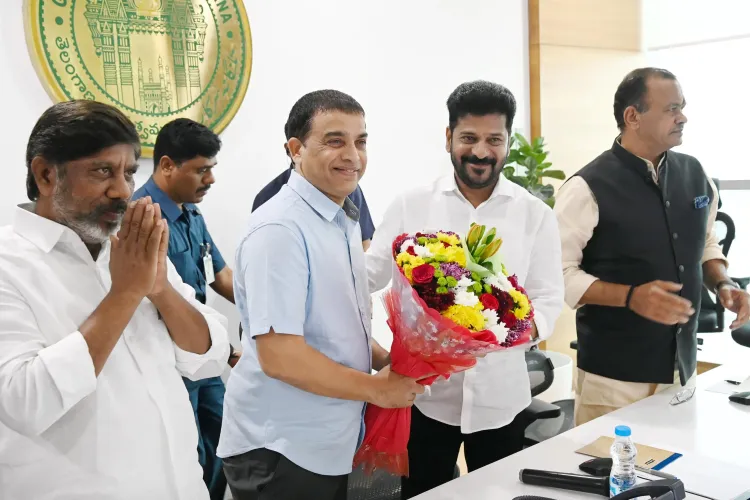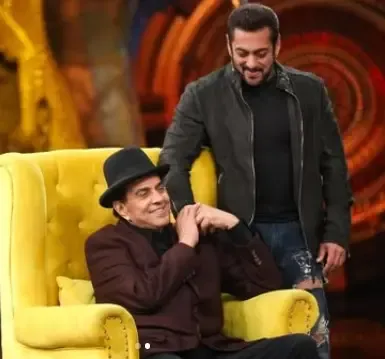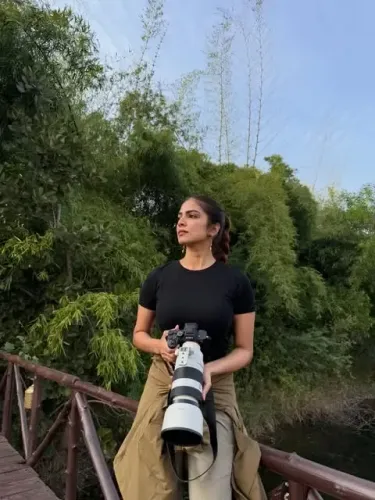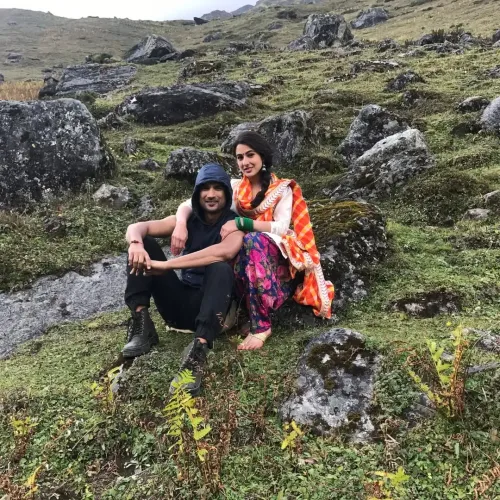Telangana Establishes Cabinet Sub-Committee to Tackle Tollywood Challenges

Hyderabad, Dec 26 (NationPress) The government of Telangana has announced the creation of a Cabinet sub-committee dedicated to resolving the issues faced by the Telugu film sector.
This decision was reached during a meeting that included Chief Minister A. Revanth Reddy, senior officials, and representatives from Tollywood.
Dil Raju, Chairman of the Telangana Film Development Corporation and a prominent producer, shared that the meeting was conducted in a constructive atmosphere, with both the government and the film industry expressing a commitment to elevate the industry to an international status and to establish Hyderabad as a global cinema center.
Pleased with the recognition Tollywood has attained at a national scale, the Chief Minister articulated his vision for the industry to build a brand that resonates on an international platform.
This meeting coincided with recent events, including a tragic stampede in a Hyderabad theatre during the premiere of 'Pushpa 2: The Rule', which resulted in a fatality, and subsequent incidents involving the arrest of actor Allu Arjun. The Chief Minister emphasized that the government is a supportive ally of the film industry.
According to a government statement, the Chief Minister remarked, 'Our administration has been fostering the film industry. To us, the film sector is as crucial as Information Technology and Pharmaceuticals.'
He also noted that Dil Raju has been appointed as the Chairman of the Film Development Corporation (FDC) to facilitate coordination between the government and the industry.
Recognizing that film productions from not only Tollywood but also Bollywood, Tamil, Kannada, and other Indian language films are taking place in Hyderabad, CM Revanth Reddy called for the establishment of essential infrastructure to draw in Hollywood filmmakers.
Dil Raju stated that the FDC would offer recommendations to the government to enhance Hyderabad as an international cinema hub.
The Chief Minister reminded Tollywood representatives that previous Congress administrations had provided necessary resources to the industry, including land for film studios, residential plots, and the development of Film Nagar, Chaitanyapuri Colony, and housing for workers. He assured the delegation that the current Congress government would uphold this tradition.
While promising all necessary support to the industry, the Chief Minister called upon the industry to acknowledge their societal responsibilities.
CM Revanth Reddy encouraged the film industry to collaborate with the government in the state's advancement.
He urged industry representatives to assist in raising awareness to combat drug-related issues and to engage in programs that benefit society.
The Telugu Film Chamber submitted a memorandum to the Chief Minister outlining the challenges faced by the industry, particularly those concerning film shoots and events.
Director General of Police Jitender guaranteed the industry's access to full support from the police.
When questioned about discussions regarding ticket prices and benefit shows, Dil Raju remarked that these were minor concerns. 'These are trivial issues compared to our grand vision of attracting Hollywood.'
The meeting was attended by a notable group, including 21 producers, 13 directors, and 11 actors, at the Police Command and Control Room in Banjara Hills.
Among those present were Deputy Chief Minister Mallu Bhatti Vikramarka, Minister for Cinematography Komatireddy Venkat Reddy, Home Secretary Ravi Gupta, Director General of Police Jitender, and other officials.
Noteworthy attendees included Allu Arjun's father and producer Allu Arvind, leading stars like Nagarjuna, Venkatesh, veteran actor Murali Mohan, and producers Suresh Babu, Naga Babu, K. L. Narayana, Damodar, S. Naga Vamsi, Kiran, D.V.V. Danayaya, C. Kalyan, Sudhakar Reddy, along with directors Koratala Siva, Anil Ravipudi, K. Raghavendra Rao, Vamsi Paidipalli, Harish Shankar, Trivikram, and actors Varun Tej, Sai Dharam Tej, Kalyan Ram, Advi Sesh, Ram Pothineni, and Siddhu Jonalagadda.










